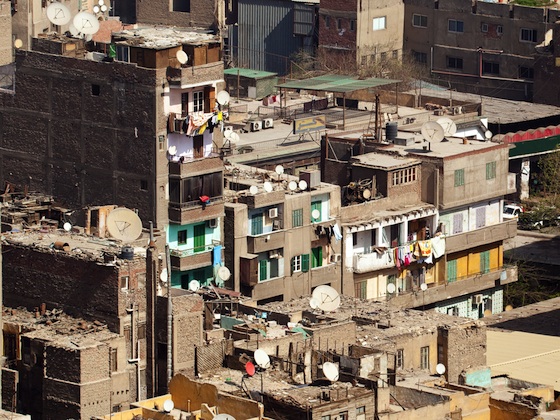Heaping urban trash may be an even more daunting global phenomenon than climate change, the World Bank warned in a recent report. What a Waste: A Global Review of Solid Waste Management reveals that by 2025, city dwellers could produce as much as 2.2 billion tonnes of solid waste a year, up 70% than the 1.3 billion tonnes currently generated.
More waste is generated in cities than rural areas because more packaging is used and less is recycled, and because people living in rural areas are less likely to have a consumption-driven lifestyle. But getting a handle on the problem, particularly in developing countries, requires a strong social contract between the municipality and community, according to the report – a serious challenge in parts of the Middle East and North Africa.
City dwellers will produce 1.42 kg of trash per day by 2025
By 2025, 4.3 billion living in cities throughout the planet will generate about 1.42 kg/capita/day of municipal solid waste, which will create a huge environmental and financial burden for the local governments tasked with managing it.
Untreated solid waste emits methane, a potent greenhouse gas, and chemicals from plastic and other packaging leach into waterways. The World Bank sites untreated waste as one of the major causes of pollution in developing countries that are ill-equipped to handle mounting waste.
Global management of solid waste could cost as much as $375 billion each year, according to the report’s authors, who add that this is a “relatively silent problem that is growing daily.”
We’ve seen children running through toxic trash piles in the souqs of Tunis and we have watched families eat their lunch in so-called green spaces in Cairo, surrounded by coke cans, koshari packaging and other waste.
A major wake up call
While many people have grown blind to the problem, the World Bank urges policymakers to consider the report as a major wake up call.
“The challenges surrounding municipal solid waste are going to be enormous, on a scale of, if not greater than, the challenges we are currently experiencing with climate change,” said Dan Hoornweg, a senior urban specialist at the development lender and co-author of the report.
Design has a huge role to play in addressing waste problems. The amount of packaging used for products needs to be reduced, recycled and reusable, preferably, and excess consumption has to be curtailed. More recycling programs are necessary and the public needs to become more informed about the origin and destination of their consumables.
We only have one planet. Let’s not bog it down with trash.
Image credit: Trash in Egypt, Shutterstock
More on Trash in the Middle East:
Zabaleen Film Portrays Cairo’s Garbage City People
Mekano Designs Renewable Energy Skyscraper for Cairo’s Filthy Garbage City
Egyptian Brothers Design a Clever Separator for Gulf Recyclables





An efficient plasma gasification plant will convert 55 tons of municipal solid waste (MSW) daily into green electricity and cost far less than a coal-fired electrical generation plant. This is the solution for clean and profitable disposal of urban waste, but big coal is using “political payola” to effectively “buy” enough votes (in Congress) to keep the plasma gasification plants from being constructed. In brief, many urban dwellers and our planet must suffer to sustain high levels of profit for big coal. We urgently need a Constitutional Convention to force reforms on Congress so we can end this type of corruption.
Isaiah 5: 7-9, KJV. We have jammed so many people so close together. Is it any wonder that problems result. We should listen to our prophets. Even so long ago they knew people were not designed to be crammed together.
Safely recycle 100% of all human-generated waste materials and
peacefully reduce the human population with family planning education. If not, we will all suffer ecocide and extinction as the planet dies from the growing mass of our pollution from our rampant overpopulation – now more than 7 billion and counting.